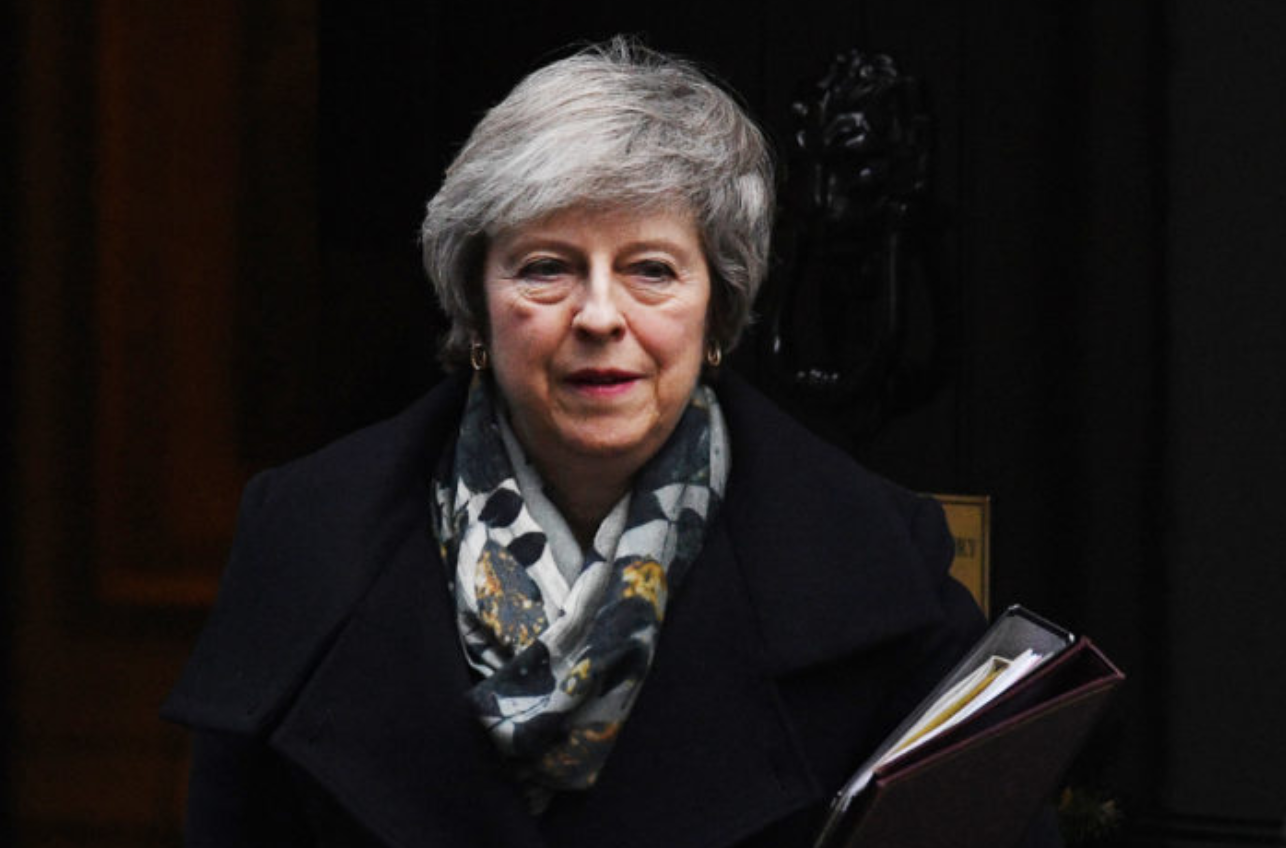Politico: British Politics Goes Over a Cliff
Source: Politico – Confluence Daily is your daily news source for women in the know.
By
Despite the defeat of historic proportions, the prime minister’s aides intend to resuscitate the Brexit deal.
LONDON — British politics is broken. It may not be fixable in time to solve the Brexit mess.
The U.K. wakes up Wednesday with a government unable to govern — in office, but without the numbers to fulfill its central purpose: a negotiated exit from the European Union.
Faced with disaster, Theresa May has a plan but no strategy — the Churchillian maxim, “Keep Buggering On.”
“KBO prime minister, KBO,” one loyal government minister urged her Tuesday in the House of Commons in the run-up to the vote she knew she was going to lose. May smiled and nodded in agreement. Right now, it is all she’s got.
May’s aides are clear: She is not giving up on her deal, despite the scale of the defeat. And she’s not quitting.
The game is now an even more intense fight for survival from one day to the next in the hope that something — anything — changes, but with little hope that it will.
Britain is now entering a period of rolling, daily crises with no obvious way out, its political class unable — or unwilling — to reach a compromise way to leave the European Union. Remainers and Brexiteers alike are convinced that voting against the prime minister’s Withdrawal Agreement takes them closer to their own desired outcome.
One side is making a miscalculation of historic proportions.
No confidence
The rolling crisis kicks off with a bang Wednesday with a vote of no confidence in the government, which if successful will trigger a general election if no alternative government can be found within 14 days.
Despite shouts of “resign” from MPs Tuesday, however, May made clear she has no intention of quitting. Instead, she intends to fight to stay in power. “KBO.”
Should she survive the vote, which will take place at 7 p.m. Wednesday — and every indication is that she will — May will find herself back in the same trap of her own making: a prime minister without power.
Out of the mess, however, two things did change Tuesday night, which MPs believe signal the direction of travel May now intends to take to avoid Britain leaving the European Union without a deal on March 29.
In her statement to parliament after the crushing result of the vote was announced, for the first time May formally reached out to leading opposition MPs.
“It is clear that the House does not support this deal,” May told MPs. “But tonight’s vote tells us nothing about what it does support. Nothing about how — or even if — it intends to honor the decision the British people took in a referendum parliament decided to hold.”
May said if she survived Wednesday’s attempt to force her government from power, she would work to find a compromise “genuinely negotiable” with Brussels.
In other words, unless the Brexiteers revise their expectations, May will be forced to look to Labour for compromises.
If a compromise can be found, May will take it to Brussels. In a briefing to journalists Tuesday night, May’s spokesman said the government would table a motion on its next steps on Monday next week before holding a vote on this new plan “quickly” afterwards — likely sometime that week.
The fury among MPs is that it has taken this long to reach this point.
Former No. 10 policy chief George Freeman, who reluctantly backed the deal, said the only way from here was to a softer Brexit. “Tonight the hardline Brexiteers think they have made no deal more likely, but actually what they have done is make no Brexit more likely or a much softer Brexit. You couldn’t make it up.”
However, he cast doubt on whether May was able to build a compromise deal with Labour. “The real question,” he said, was “is [Theresa May] able and really willing to reach out and do what for two and a half years she has absolutely refused to do, which is build a cross-party consensus. And will they trust her to do that?”
The second big change announced by May Tuesday is that “no deal is better than a bad deal” has all but disappeared as government policy. Instead, May told MPs voters did not vote for no deal because they had been told an agreement would be easy to reach with Brussels.
Should May survive Wednesday’s attempt to force a general election, she finds herself in a race against time to find a compromise package negotiable with Brussels.
Brussels also wants to know what might command a majority in parliament. “I want to know what kind of deal the House of Commons really wants,” the European Parliament’s Brexit coordinator Guy Verhofstadt asked.
European Commission President Jean-Claude Juncker also called for clarity. “I urge the United Kingdom to clarify its intentions as soon as possible. Time is almost up,” he said.
Donald Tusk, the European Council leader, appeared to call for Brexit to be abandoned altogether. “If a deal is impossible, and no one wants no deal, then who will finally have the courage to say what the only positive solution is?” he said.
In Westminster, a lot more is now in play.
May’s spokesman said the prime minister could work with Labour MPs to bulk up guarantees on workers’ rights, as well as those across the House who wanted to find a way to rule out no deal.
“We want to leave with a deal and will work with others who share that,” the spokesman said.
Behind the scenes, the government is weighing even more radical options. One idea floated by an influential government minister was to offer MPs a free vote — freeing MPs from voting on party lines. The idea is to bust open the party-political system to allow Labour MPs to back the deal. The Tory minister who spoke to POLITICO said Labour would feel compelled to follow the Tories if they gave their MPs a free vote, though Corbyn may have other ideas.
Despite the conciliatory tone, May’s advisers said the “principles” behind the government’s negotiating strategy would not be bargained away. The government wants to avoid no deal, while also guaranteeing an independent trade policy and U.K. control over its “money, borders and laws.”
May’s aides also said she was still determined to leave on March 29.
Talks with opposition MPs will begin Thursday, the aides said.
A motion will then be tabled Monday setting out the government’s next steps. This motion will be amendable, giving MPs the chance to test out alternative options, from a second referendum, super-soft “Norway”-style exit or a permanent customs union. Right now, none appears to have majority support in the House of Commons.
Despite the scale of the defeat Tuesday — which Labour said had left the proposed exit deal “dead” — May and her most senior Cabinet colleagues and advisers appear to believe it can be resuscitated.
In the House of Commons before the vote, Attorney General Geoffrey Cox told MPs: “This Withdrawal Agreement will have to return in much the same form, with much the same content. Therefore, there is no serious or credible objection that has been advanced by any party to the Withdrawal Agreement.”
May wrapped up her remarks after the defeat with a promise to voters that she had not given up. “The government has heard what the House has said tonight, but I ask members on all sides of the House to listen to the British people, who want this issue settled, and to work with the government to do just that.”
In other words: May is buggering on.
Confluence Daily is the one place where everything comes together. The one-stop for daily news for women.





